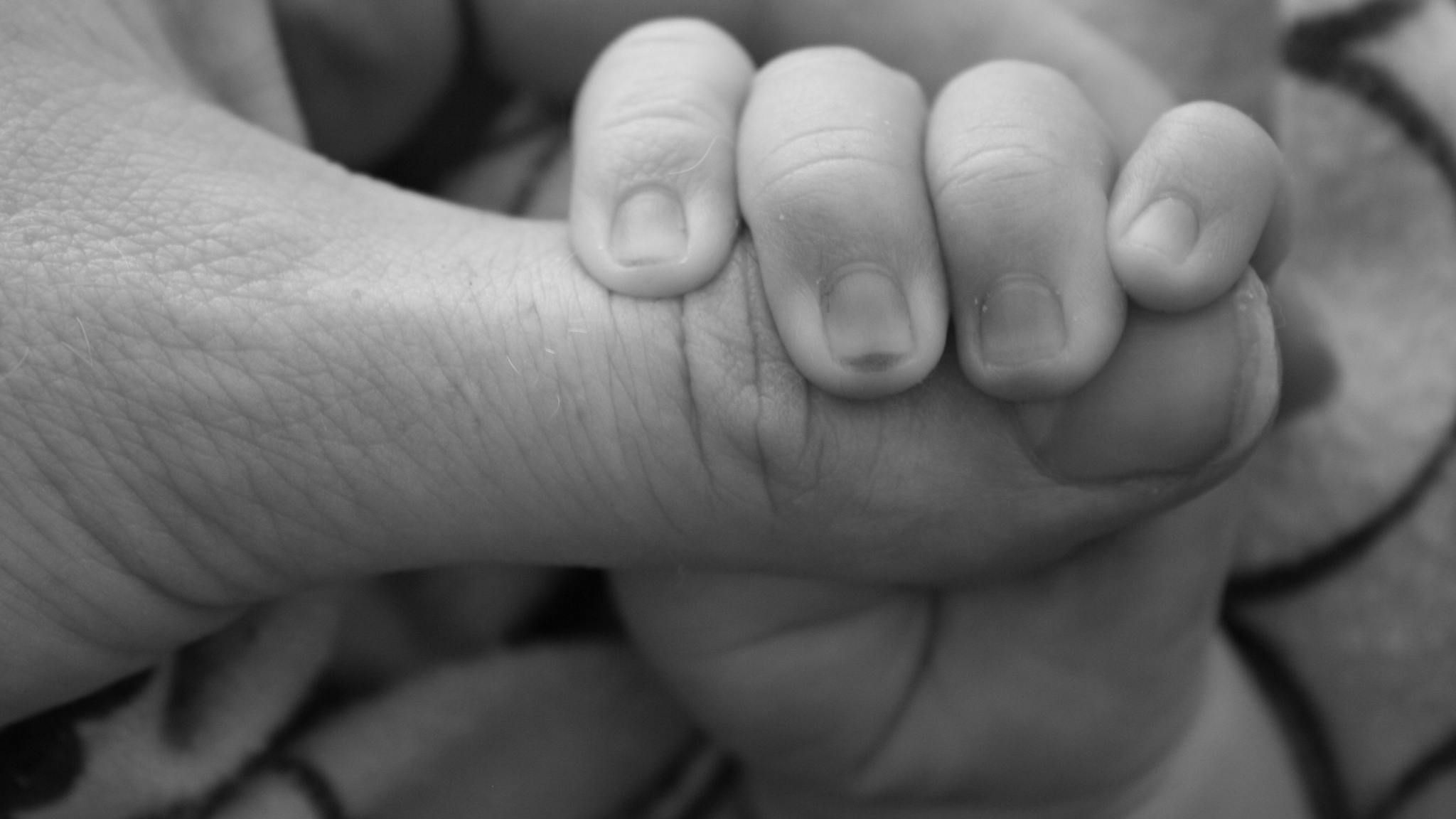Help Baby A's court battle to maintain life-support
East London, Kent
Reporting restrictions mean we cannot share the name of Baby A's parents, or their image.
Thank you.
A London hospital is vying to remove life support from a 4-month old baby against his parents’ wishes despite the newborn showing signs of life weeks after doctors had declared him “brain stem dead.”
The infant, whose name has been concealed by the courts and is referred to as “Baby A,” is currently residing in a London hospital run by the publicly funded Guy’s and St. Thomas’ NHS Foundation Trust, where doctors are arguing that it is in the boy’s “best interests” to be removed from mechanical ventilation, an act which could lead directly to his death.
Baby A’s parents, on the other hand, are contesting the life-threatening advice of the doctors and are currently engaged in a legal battle with the hospital to keep their son on ventilation while they hope for a more substantial recovery. However, the doctors have petitioned the High Court of Justice Family Division to have Baby A’s life support removed, apparently to serve his “best interests.”
On July 13 Justice Anthony Hayden, the same judge who ruled against continuing life support for 12-year-old Archie Battersbee two days prior and oversaw the Alfie Evans case in 2017, handed down a ruling requiring expert evidence to be given supporting the case for Baby A to be denied resuscitation in the event of cardiac arrest, as sought by the doctors in charge of his care.
The parents do not yet have legal representation for their case and are seeking assistance to acquire counsel and to cover the associated costs.
Baby A was born happy and healthy, his father told LifeSiteNews in a Wednesday interview. It wasn’t until eight weeks later that Baby A’s health deteriorated, with his father first noticing that something was wrong in the way he was sleeping.
“I put my hand on his chest and found he was not responding,” the father told LifeSite, adding that the child’s body had “become cold to the touch” and “a little floppy,” at which point he became worried and called for an ambulance.
According to the court, Baby A had sustained a cardiac arrest before arriving at the emergency department of the Queen Elizabeth Hospital (QEH) where he regained circulatory function around 30 minutes later.
The father explained that over the course of the next three days many tests were undertaken to determine the cause of Baby A’s illness, discovering head and chest injuries. On June 17, a brain stem examination showed no response from the brain stem, but the next day a similar test was undertaken which elicited a “hiccup,” Baby A’s father explained.
On June 19, however, after another failed brain stem test, Baby A was declared “brain stem dead” by “Dr. R and Dr. L,” the court document states.
Unsatisfied with the declaration of “brain death,” the parents requested a second opinion. Two doctors from Kings College Hospital performed further tests on Baby A on June 22, including MRI scans which “revealed signs of both subdural and subarachnoid haemorrhaging,” the court report reads.
The two doctors, “Dr. E and Professor X,” concluded that Baby A had suffered “irreversible cessation of brain stem functioning” and concurred with the June 19 “brain death” declaration.
After the second opinion was offered, the hospital tried “every day to convince” Baby A’s parents to withdraw life support, his father said, explaining that he and his wife “still have faith and still believe that [their son’s] health will come back.”
Despite their objections, the hospital began proceedings with the court to have permission to remove life support, with the first hearing being set for around three weeks later, on July 13.
However, on the night of July 2 a “very experienced and entirely suitably cautious nurse” noticed Baby A attempting to breathe “notwithstanding that A’s death had been ascertained and recorded,” court records show. “She believed that she had seen [Baby A] both move and attempt to breathe.”
Subsequently a doctor, “Dr. Z,” investigated the claim, discovering that Baby A was breathing despite having been declared “brain dead.” Dr. Z reported that Baby A “has consistent shallow irregular breathing when disconnected from the ventilator for short periods of time,” adding that “[i]ntermittent larger breaths result in extensor movement of head and neck en masse.”
Accordingly, the “clinical diagnosis of brain death was immediately rescinded.”
Baby A’s father told LifeSite that the judge asked the doctors about the brain stem testing they had performed, the reason they carried it out, its accuracy, and the reason that the child “came back” after being declared dead. In response, the father noted, most of the doctors answered that “never in their lifetimes had they seen” a child recover from a declaration of “brain death.”
The doctors further confirmed that “nothing like this has happened in the history of the U.K.,” the father said, adding the judge’s comments that the chain of events following his son’s recovery represent an “unprecedented situation” and “unknown territory.”
Both the father and mother see what has happened to their son as “a miracle.”
The hospital requested Hayden to “make a declaration confirming that it would be lawful and in A’s best interests not to resuscitate in the event of cardiac collapse.”
“It is clear that A’s neurological status is deeply compromised; however, his condition is otherwise medically stable,” the judge wrote. “In the highly unusual circumstances of this case, I am not, at this juncture, prepared to make the declaration sought.”
Indeed doctors affirmed that “A’s heart is strong and there is no particular reason to believe that resuscitation would be unsuccessful,” prompting Hayden to adjourn until there is “further independent expert evidence to look at A’s circumstances neurologically and more generally” before granting or denying permission for the hospital to remove life support against Baby A’s parents’ wishes.
The court reconvened on Thursday, where a senior physician shared her shock that Baby A began breathing independently two weeks after failing two brain stem tests and being declared “brain stem dead.”
According to a SkyNews report, the doctor described the “brain death” declaration as “a horrible error” and sympathized with the parents whose lives have been turned upside down by the ordeal. “I can only say that I am terribly sorry for what has happened,” the doctor added.
A second physician testified that Baby A shows there is a problem with the brain stem test as a verification of death, telling the High Court that “brain injuries need time to assess fully, to understand what is permanent damage and what is temporary.” The doctor advocated for extending the period of clinical observation of children in hospitals before commencing brain stem testing, arguing that the “preconditions of brain stem testing need to be reconsidered in smaller children.”
On account of the expert testimony, Hayden said that the “unprecedented” recovery of Baby A has been “striking even for those of us experienced in these cases,” prompting him to describe brain stem testing as “unreliable.”
Baby A’s parents petitioned the court for an adjournment, such that they might have time to acquire appropriate legal representation to advocate for their child’s life, but on Friday Hayden refused. The judge also granted legal authorization to the hospital to remove life support from the infant, arguing that “continued ventilation will serve here only to protract death.” The hospital has confirmed its intention to do so on Saturday morning.
The parents are now in a desperate race to file an urgent appeal against the decision.
Following the news of Baby A’s recovery from a “brain death” declaration, the Academy of Medical Royal Colleges has confirmed that it is now revising the legal conditions under which brain death declarations can be made which lead to hospitals removing life support.
New guidelines are expected to be drafted in 2023.
Baby A’s father noted that since his son started showing signs of independent breathing and movement that the family has documented further occasions of what appears to be attempts to breath and move on his own. Hospital staff, however, have been reluctant to believe that there is any change in the baby’s condition and consistently downplay indications of improvement, the father said, adding that medical staff frequently state that his son has “no chance to recover” and that “his only option is to be taken off life support.”
He also emphasized the personal difficulty of the past two and a half months since his son fell ill, lamenting the need to be away from his son to work to pay the family’s bills while his child’s life hangs in the balance.
“We are only fighting for my little one, his life, nothing else,” he explained. “We can’t sleep; we are only thinking about him.” Whereas for the hospital Baby A is “just another number, one patient,” he said, “for me, this is my child.”
“This is my blood, this is my soul. Without him, we don’t know our place in this world. He’s not dead, he is alive, and as his parents we have a right to protect him.”
Continuing, Baby A’s father said that the family’s religious faith plays a key role in their fight to give his son a chance at making a substantial recovery, noting that “as guardians, we can’t give permission to take his life. It’s very important for my religious belief and for my little one: he has rights because he is alive.”
It is up to others to fight for him since “he can’t fight for himself,” his father said.
In order to help the family to fight for Baby A’s right to life, please consider donating to their LifeFunder campaign today.
ENDS.





